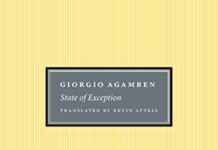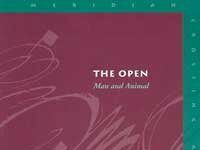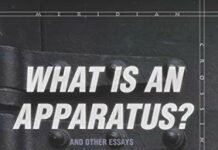
Ebook Info
- Published: 1998
- Number of pages: 228 pages
- Format: EPUB
- File Size: 1.00 MB
- Authors: Giorgio Agamben
Description
The work of Giorgio Agamben, one of Italy’s most important and original philosophers, has been based on an uncommon erudition in classical traditions of philosophy and rhetoric, the grammarians of late antiquity, Christian theology, and modern philosophy. Recently, Agamben has begun to direct his thinking to the constitution of the social and to some concrete, ethico-political conclusions concerning the state of society today, and the place of the individual within it.In Homo Sacer, Agamben aims to connect the problem of pure possibility, potentiality, and power with the problem of political and social ethics in a context where the latter has lost its previous religious, metaphysical, and cultural grounding. Taking his cue from Foucault’s fragmentary analysis of biopolitics, Agamben probes with great breadth, intensity, and acuteness the covert or implicit presence of an idea of biopolitics in the history of traditional political theory. He argues that from the earliest treatises of political theory, notably in Aristotle’s notion of man as a political animal, and throughout the history of Western thinking about sovereignty (whether of the king or the state), a notion of sovereignty as power over “life” is implicit.The reason it remains merely implicit has to do, according to Agamben, with the way the sacred, or the idea of sacrality, becomes indissociable from the idea of sovereignty. Drawing upon Carl Schmitt’s idea of the sovereign’s status as the exception to the rules he safeguards, and on anthropological research that reveals the close interlinking of the sacred and the taboo, Agamben defines the sacred person as one who can be killed and yet not sacrificed—a paradox he sees as operative in the status of the modern individual living in a system that exerts control over the collective “naked life” of all individuals.
User’s Reviews
Reviews from Amazon users which were colected at the time this book was published on the website:
⭐This is an important book making striking points, though it is dominated by an exaggerated view of “biopolitics.” Also, the validity of important insight does not prove the complex theses on the foundational significance of homo sacer, as bare life under a “ban,” who “can be killed but not sacrificed” (p. 113). Thus, there is no shred of evidence for statements such as “Not simple natural life, but life expose to death (bare life or sacred life) is the original political elements” (p. 88). The main ideas making this book significant do not depend on the theory of “homo sacer” and may well be clearer without it.Leaving aside the discussion of “state of exception,” which Agamben develops in another book to be reviewed separately, the strong points of the Homo Sacer book include, inter alias, the following:1. Emphasis on ontology of potential, with the valid conclusion that “Until a new and coherent ontology of potentiality…has replaced the ontology founded on the primacy of actuality … a political theory freed from the aporias of sovereignty remains unthinkable” (page 44).2. Pinpointing weaknesses of democracy, such as “The understanding of the Hobbesian mythologeme in terms of contract …condemned democracy to impotence every time it had to confront the problem of sovereign power and has also rendered modern democracy constitutionally incapable of truly thinking a politics freed from the form of the State” (p. 109). This may well provide a key to understanding and coping with increasingly fateful global issues on which organizations based on states are quite impotent. As succinctly put, “…every time refugees represent…a mass phenomenon, both [international organizations] and individual states prove themselves, despite their solemn invocation of the `sacred and inalienable’ rights of man, absolutely incapable of resolving the problem and even of confronting it adequately” (p. 133). This is validated by recent developments, such as Syrian refugees, and is sure to become worse – such as when climate change results in masses of refugees.3. A sharp distinction between the rights of citizen and human rights, with dire consequences for human welfare. Indeed “The separation between humanitarianism and politics that we are experiencing today is the extreme phase of the separation of the rights of man from the rights of the citizen” (p.133).4. A profound discussion, in chapter 7, of “The Camp as the `Nomos’ of the Modern” (p. 166), with the “camps being a “hybrid of law and fact in which the two terms have become indistinguishable” (emphasis in original) and in which “everything [bad] is possible” (p. 170). However, it is a gross exaggeration to regard “the camp…as the hidden paradigm of the political space of modernity” (p. 123).The most problematic frame of the book is biopolitics, with claims such as “in modernity life is more and more clearly placed at the center of State politics (which now becomes, in Foucault’s terms, biopolitics) (p. 111). But the author, while largely wrong on the contemporary situation, shows premonition. Human enhancement and other science and technology innovations will indeed put a radical form of biopolitics at the center of global concerns, with issues related to human enhancement becoming central on political agenda. They are likely to lead to quite some revaluations, such as on science and technology freedom, leading through harsh crises to a new global regime and a novel genre of political leaders (as discussed in my recent book).Indeed, humanity is moving towards “risking an unprecedented biopolitical catastrophe”, as stated in the concluding sentence of the book (p.188), with “the sovereign … entering into an even more intimate symbiosis not only with the jurist but also with the doctor, the scientist, the expert, and the priest” (p. 122). Statements such as “In modern biopolitics, sovereign is he who decides on the value or the nonvalue of life as such” (p. 142) and “politics …giving form to the life of a people” (pp. 144ff) are likely to fit the future, making this book more into a high-quality longer-term prognosis than a valid diagnosis of the present time.Professor Yehezkel DrorThe Hebrew University of Jerusal
⭐A very frightening book when you understand the concept. Reading about how the old monarchies and oppressive regimes actually had strict limits on their power, in that they had very limited legal claims on your life and property, and how modern governments actually lay claim to your very existence is far more scary than any horror movie populated by the undead (at least to me). Being a subject to a king who could banish me seems much better than a republic that could kill me at it’s leisure. Granted, all systems of government go through a legal process (even the Nazis had due process before sending Jews and Gypsies to the camps), but the defining concept of this book is how modern governments (particularly republics) establish a legal claim to everything. To put it a simple way: no government (warre) means anyone can kill anyone with no repercussions mandated. Old governments would have you fulfill a criteria before you were an outlaw (outside the protection of the law) and could be killed without repercussion (think a Wanted: Dead poster). Now governments can place you outside the law (or inside the death camp/inside Guantanamo Bay) merely by changing or creating the law, because the body politic thinks they have a total claim on you. The actual text is very technical (possibly due to the translation and concepts contained therein), but certainly a must read for those who want to truly understand the barbarities of our current civilization.
⭐Easily described as an extension, or ‘elastication’, of Foucault’s critique of biopower, the life-giving, sustaining power of the contemporary state, and how it has grown up, from its very roots, as the primary term of sovereignty (the power of “auctoritas,” to command authority and originate the law) in the West, finally to take on its present project of attempting to stretch itself over all of life and cement the control society. The book stands well alongside comtemporary criticism of global capitalism, including the work of Slavoj Zizek and Negri & Hardt. But on another level, this is much more than a gloss on Foucault’s analysis of power. Agamben’s perspective is different from Foucault’s, he’s uninterested in lengthy, sweeping archaeologies, although he does delve into the history of language and the law in some detail. Subsequent parts in the Homo Sacer series and the book “State of Exception” give even more depth to the work, and connect it to the enormous tightening up of government and legal controls since 9/11.
⭐Someone said that this book was one of the greatest things one has read in the year. I took a look at the subject and decided to try it, because it seemed interesting! Unfortunately, it proved to be a disappointing book.See, I do not want to be too harsh. I am no expert in the subject of the book – actually, I have too little formal training in Humanities anyway. Maybe it is my fault, I am just too ignorant to read it. But I have read a lot of people and got it. I have read Aristotle, Hume, Descartes, even Kant, and they all make some sense and were even pleasant to read. Ok, I am a dilettante, I am sure my comprehension of them is limited but at least I got something from those authors. I just could read them.This is not the case for Agamben. His prose is cumbersome and confusing. I do not know if he is too succinct or too verbose, but it was mostly impossible to get what he were trying to say in a specific paragraph, let alone in a chapter. I have seem some shadows of the ideas on the text, and they are pretty interesting, but the opacity of the prose prevent me from understanding it. I just could not finish the book, I give up after two chapters.As I’ve said, it may be my shortcoming. Nonetheless, there I register a cautionary note for eventual casual readers. It can be pretty hard to read.
⭐Homo Sacer is one of those few books that after reading I was a different person. It is a profound but very difficult text to understand. However difficult it may be, I would argue it is a necessary read for anyone who is interested in current politics matters of law and many contemporary ethical issues. In the introduction Agamben reflects on the fact that the Ancient Greeks had two words for life bios, and zoe: he characterizes Zeo as natural or “Bare Life” and argues that this, inclusions by exclusion of Zoe from bios is a fault-line that has been in the heart of politics (western) from its very inception. Building on the ideas of Foucault, Arendt, and in definition of Sovereignty suggested by Schmitt “sovereign is he who decides on the state of exception” Agamben constructs a power critic of political-Judical systems, and how they come more and more to exercise their power on the bodies of their subjects, the camps and the holocaust being the most extreme expression. However Homo Sacer is a very difficult read in the tradition of Continental Philosophy, I also feel it is something of an introduction to Remnants of Auschwitz.Once read nobody can hear the argument surrounding “the war on terror” in the same way. Agamben raises many challenging questions, although it has to be said not all that many solutions. However difficult this text is it is profound and important a must read.
⭐thanksxxx
⭐thank you
⭐an interesting book, but to take the Hobbesian idea that an individual who no longer comes under any law is returned to a state of nature – cast out so that anybody who kills that person is not punished, in the old Roman maxim – is one thing; to stretch it to argue that we are all becoming homo sacer is smethng else. I’m about to read his second book, State of Nature, in the hope that he’s going to convince me. Interesting idea though, especially given the Guantanamo Bay inmates and the current refugee crisis.
⭐Great product.
Keywords
Free Download Homo Sacer: Sovereign Power and Bare Life (Meridian: Crossing Aesthetics) 1st Edition in EPUB format
Homo Sacer: Sovereign Power and Bare Life (Meridian: Crossing Aesthetics) 1st Edition EPUB Free Download
Download Homo Sacer: Sovereign Power and Bare Life (Meridian: Crossing Aesthetics) 1st Edition 1998 EPUB Free
Homo Sacer: Sovereign Power and Bare Life (Meridian: Crossing Aesthetics) 1st Edition 1998 EPUB Free Download
Download Homo Sacer: Sovereign Power and Bare Life (Meridian: Crossing Aesthetics) 1st Edition EPUB
Free Download Ebook Homo Sacer: Sovereign Power and Bare Life (Meridian: Crossing Aesthetics) 1st Edition




